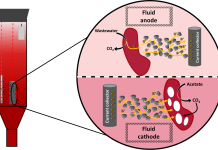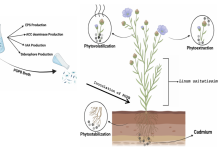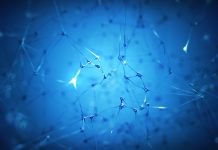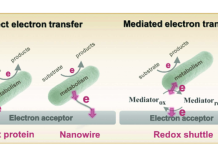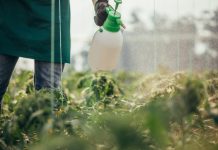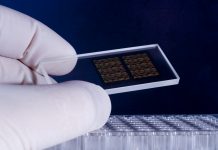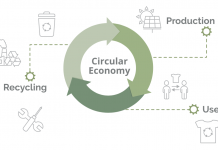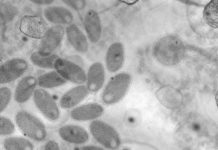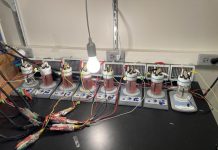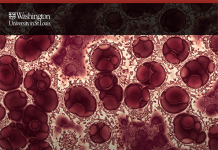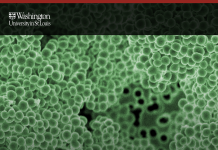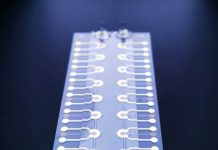Open Access Government produces compelling and informative news, publications, eBooks, and academic research articles for the public and private sector looking at health, diseases & conditions, workplace, research & innovation, digital transformation, government policy, environment, agriculture, energy, transport and more.
Home 2025
Archives
Exploring genetic tools in environmental microbes: Applications in extracellular electron transfer
Arpita Bose and Zhecheng Zhang explore genetic tools in environmental microbes, citing applications in extracellular electron transfer/
Cadmium (Cd) toxicity and its remediation through plant growth promoting bacteria
This review explores how Cadmium (Cd), a toxic heavy metal that continues to pollute our environment, impacts plants and humans, and examines how plant growth-promoting bacteria (PGPB) can be used for eco-friendly remediation through multi-omics approaches.
Purple phototrophic bacteria and microbial electrochemical technologies: A new biorefinery concept for wastewater treatment
The shift towards sustainable wastewater treatment focuses on nutrient recovery through biorefineries, highlighting the importance of microalgae, cyanobacteria, and, more recently, purple phototrophic bacteria for their metabolic flexibility and adaptability.
Exploring microbial electrosynthesis at Washington University in St. Louis
Dr Arpita Bose discusses research into bioelectrochemical systems and microbial electrosynthesis at the Department of Biology, Washington University.
Microbially-assisted phytoremediation of cadmium
Arpita Bose, PhD, Associate Professor and Nida Zainab, PhD Researcher at Washington University in St. Louis, guide us through the process of microbially-assisted phytoremediation of cadmium.
Role of extracellular electron transfer in the nitrogen cycle
Extracellular electron transfer impacts the nitrogen cycle by enhancing microbial processes and connecting to other biogeochemical cycles. Understanding EET mechanisms provides insights into ecosystem functioning and potential advancements; Arpita Bose and Zhecheng (Robert) Zhang explain.
Microbial extracellular electron transfer in the human gastrointestinal tract
Gratian Ting and Arpita Bose from Washington University in St. Louis discuss the fascinating role that extracellular electron transfer plays within the human gut.
Extracellular electron transfer explained
Arpita Bose, PhD from Washington University in St. Louis, guides us through host-associated impacts and biotechnological applications of extracellular electron transfer in electrochemically active bacteria.
Bacterial photobiohybrids and photosynthesis: Optimizing energy harvesting with bacterial-semiconductor hybrids
Photosynthesis serves as the primary mechanism for converting solar energy into chemical energy and plays a pivotal role in regulating atmospheric oxygen levels and carbon dioxide concentrations, influencing global climate patterns as a result.
Purple bacteria and their less known applications
Jungwoo Lee, High-School Student, and Arpita Bose, Associate Professor at Washington University in St. Louis, guide us through purple bacteria and their less-known applications, including wastewater treatment and biofertilization.
Microfluidic microbial bioreactors: How studying microbes at the microscale can help empower microbiology
Long before the existence of microbes was known, humans were unknowingly harnessing their power through practices such as brewing, bread leavening, or cheesemaking. These processes extended the shelf life of food, enhanced its nutritional value, and significantly contributed to the advancement of industry and civilization.
Purple non-sulfur bacteria and the circular economy
Arpita Bose, Associate Professor at Washington University in St. Louis, discusses the potential of microbial solutions in supporting sustainable and environmentally responsible alternatives to the traditional linear economy.
Harnessing redox power for biotechnological application in purple non-sulphur bacteria
Here we explore purple non-sulfur bacteria (PNSB) and some of its biotech applications, with a focus on how these applications have been enhanced by manipulating the flow of reducing power.
The role of microbial diversity in microbial electrosynthesis
Bacteria are often painted as the enemy of humanity. Before the discovery of antibiotics, a wound getting infected was frequently a death sentence.
How to convert CO2 to bioplastics in the age of global warming
Arpita Bose, PhD, Associate Professor, describes how to convert CO2 to bioplastics through new bugs and novel tools with a focus on fighting global warming.
The role of microbial diversity in microbial electrosynthesis
Bacteria are often painted as the enemy of humanity. Before the discovery of antibiotics, a wound getting infected was frequently a death sentence.
Biofuels as petroleum alternatives: Closing the carbon cycle with bacteria
Finding a way to close the carbon cycle is crucial in our steps towards a greener planet; researchers believe that filtering out petroleum and utilizing other options like biofuels we can help reduce our CO2 emissions.
Bioplastics and back: Bacterial construction and degradation methods
Bioplastics are a subject of increasing interest due to demand for traditional petroleum alternatives. Several pathways to bioplastic generation are known today.
Microbes on a chip: How microfluidics can help us better understand and engineer electroactive...
Electroactive microbes exchange electrons with their environment for survival.
The role of synthetic biology in Microbial electrosynthesis
Microbial electrosynthesis (MES) describes synthetic biology approach to the conversion of CO2 to various carbon compounds via the electrochemical interactions of electrographic biocatalysts and an electrode.



